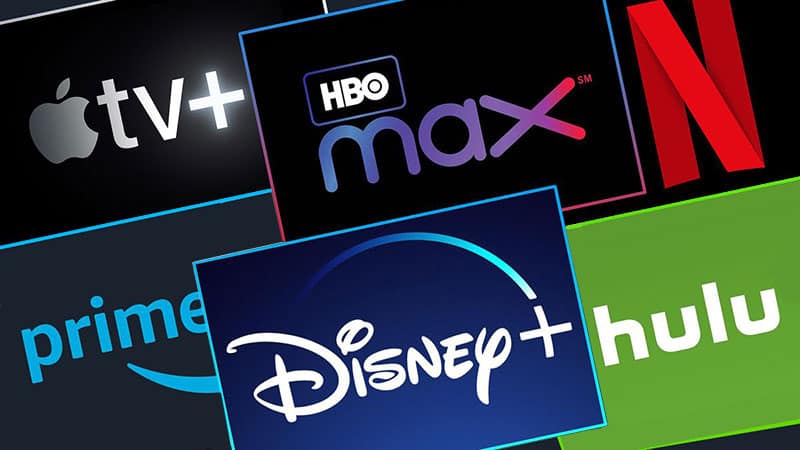Stream Dreams: Navigating the Digital Entertainment Revolution
Stream Dreams: Navigating the Digital Entertainment Revolution
Blog Article

In recent years, the world of entertainment has undergone a remarkable transformation, driven by the rise of online streaming. As consumers increasingly turn to digital platforms for their viewing and listening pleasure, traditional media formats are being redefined. No longer confined to scheduled broadcasts or trips to the local cinema, viewers now enjoy unprecedented access to a diverse array of content, from blockbuster films to indie documentaries, all available at their fingertips.
This digital revolution is reshaping not just how we consume media, but also how creators produce and share their work. Streaming services have democratized content distribution, providing a platform for voices that may have otherwise gone unheard. With the ability to watch whatever we want, whenever we want, the way we engage with stories is evolving. As we navigate this streaming landscape, it becomes increasingly important to understand the implications of this new entertainment paradigm and its impact on our cultural experiences.
tv.youtube.com
The Rise of Streaming Platforms
The digital landscape has undergone a significant transformation in recent years, with online streaming emerging as a powerful medium for content consumption. As a result of increased internet speeds and the proliferation of smart devices, viewers now have access to a vast array of shows, movies, and live events at their fingertips. Traditional cable subscriptions have witnessed a decline as audiences increasingly prefer the flexibility and convenience offered by streaming platforms, which allow for on-demand viewing from virtually any location.
Key players in the streaming sector, such as Netflix, Amazon Prime Video, and Hulu, have revolutionized the entertainment industry by offering original content that appeals to diverse audiences. This shift not only offers viewers a break from commercial breaks but also provides a tailored experience through personalized recommendations. The adoption of subscription-based models has allowed these platforms to invest in high-quality productions, leading to an explosion of creative storytelling that captivates global audiences.
As the competition intensifies, new entrants into the market are constantly emerging, each aiming to carve out their niche. Platforms like Disney Plus and HBO Max are leveraging their rich libraries of beloved franchises to attract subscribers. This ongoing evolution indicates that streaming is not a fleeting trend but rather a fundamental change in how we consume media. As technologies improve and user preferences shift, the future of entertainment lies firmly within the realm of online streaming.
Impact on Traditional Media
The rise of online streaming has significantly altered the landscape of traditional media. Viewers now have unprecedented access to a vast array of content at their fingertips, leading to a marked decline in linear television viewership. This shift is particularly evident among younger demographics, who increasingly prefer on-demand services over scheduled programming. As a result, traditional broadcasters are finding it challenging to maintain audience engagement and advertising revenues, leading to a reevaluation of their business models.
Moreover, streaming platforms have changed the nature of content production and distribution. Networks and studios, once dominant in content creation, now find themselves competing with digital platforms that invest heavily in original programming. This has resulted in a more diverse range of content being produced, catering to varied tastes and interests. Traditional media companies have begun forging partnerships with streaming services or launching their own platforms to adapt to this new reality, indicating a shift towards hybrid models of content delivery.
Lastly, the impact on advertising strategies cannot be overlooked. As audiences migrate to ad-free or subscription-based streaming services, traditional media outlets face growing pressure to innovate their advertising approaches. Brands are influenced by streaming's ability to provide targeted advertising based on user data, prompting a decline in conventional mass-marketing strategies. This evolution necessitates that traditional media embrace new technologies and innovative advertising methods to remain relevant in an increasingly digital entertainment landscape.
The Future of Entertainment Consumption
As we look ahead, the landscape of entertainment consumption continues to evolve at an unprecedented pace. Online streaming has established itself as a primary source of content delivery, reshaping how audiences interact with film, television, and music. With the rise of personalized algorithms and user-friendly interfaces, viewers can easily discover new content tailored to their preferences. This shift towards on-demand access not only meets the desires of consumers but also opens up new opportunities for creators to reach audiences directly.
Moreover, the emergence of new platforms and technologies is set to further transform the streaming experience. Virtual reality, augmented reality, and interactive content are poised to offer immersive experiences that traditional media cannot match. As consumers become increasingly accustomed to engaging with dynamic content, businesses in the entertainment sector will need to innovate continuously to capture attention in an ever-crowded market. This evolution will likely lead to a fragmented landscape, where niche streaming services carve out their spaces alongside larger, more established players.
Additionally, the global nature of online streaming presents both challenges and possibilities. As barriers to access diminish, creators from diverse backgrounds can share their stories with a worldwide audience. However, this also raises questions about content regulation, copyright issues, and cultural representation. The future of entertainment consumption will hinge on finding a balance between promoting creativity and ensuring fair practices in this digital age, making it an exciting time for both consumers and creators alike.
Report this page